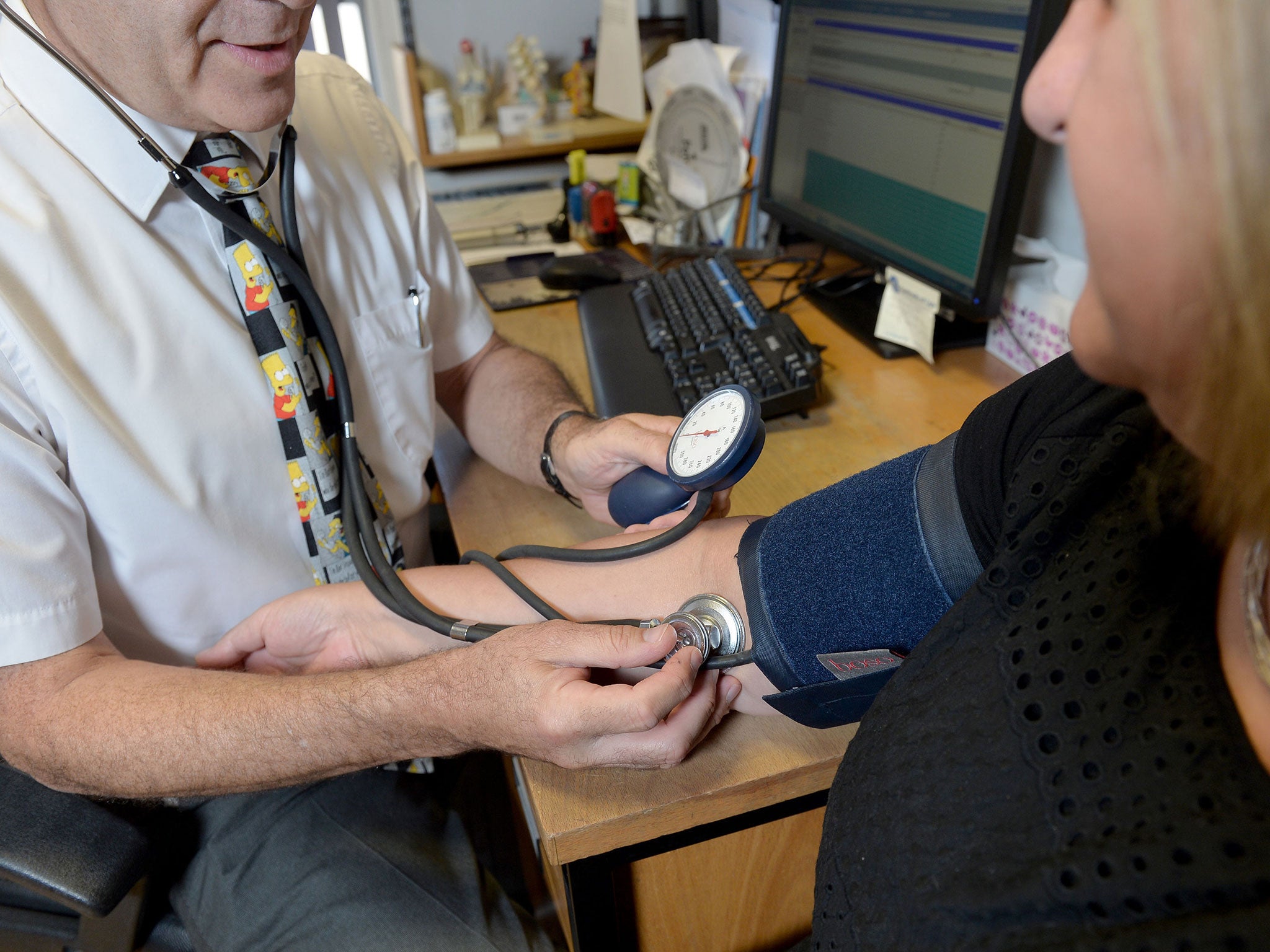Jeremy Hunt's GP recruitment pledge in tatters as 1,000 full-time NHS doctors quit last year
Government is 1,200 doctors further from its target to recruiting an extra 5,000 GPs, set in 2015

The NHS has lost the equivalent of 1,000 full-time GPs in the past year as "unbearable" workload pressures and funding shortfalls drive out doctors.
The figures – which contradict a pledge from the Health Secretary to recruit an extra 5,000 GPs by 2020 – have been described as "gravely concerning" by doctors' leaders, who warn that the shortage will lead to increased waiting times at surgeries already struggling to cope with over-subscribed patient lists. They also come as the Chancellor faces mounting pressure to hand over more cash to the health service in Wednesday's Budget, with NHS boss Simon Stevens making an unprecedented plea for extra money earlier this month.
While there are around 41,324 doctors working in general practice, 500 fewer than two years ago, the pressures of the job mean they are increasingly working less than the NHS definition of “full-time”, opting instead for freelance work.
The Department of Health said more GP trainees are in the pipeline, and it has plans to allow GPs to work flexibly, but there has been a steady decline in GP numbers since March 2016. The latest provisional figures show no sign of this slowing.
Despite £20,000 incentives to attract trainees and attempts to hold on to senior staff, the NHS is now 1,200 GPs further away from its target of recruiting an extra 5,000 GPs by 2020 than when it was first set by Health Secretary Jeremy Hunt in September 2015.
The Department of Health baseline at that time was 34,592 full-time GPs, but two years on the September 2017 figures show overall numbers stand at 33,302.
But this overall total also includes GPs in training and the growing proportion of GPs working freelance or part-time as locums to better control their workload.
A footnote from NHS Digital warns this overall figure is artificially inflated by changes in how numbers are reported, which saw 300 extra GPs added overnight.
“The subsequently higher GP locum numbers reported in March 2017 are not comparable to previous figures in the time series due to indications that this additional guidance has led to more accurate reporting of GP locum staff,” NHS Digital says.
The biggest decrease has been among GP partners, who make up the bulk of the workforce, falling from 21,937 in 2015 to 20,234 this September.
This is offset slightly by an increase of around 300 full-time equivalent salaried GPs, who are employed by practices on permanent contracts, and locums.
Locums can earn significant amounts with many practices struggling to fill vacancies, and they are able to book their work which makes it a popular for GPs with families or those looking to take on other “portfolio” roles.
A study earlier this year found almost half of GPs were planning to quit or cut down their hours amid warnings of “perilously low morale”.
The steady decline in numbers shows these fears are being borne out, and this summer the NHS announced it was resorting to recruiting as many as 3,000 GPs from Europe to fill the gaps.
GP representatives from the British Medical Association told The Independent the continued decline was “not a surprise” because, despite the pledged funding increases, “this is just not reaching practices”.
“I don’t think it’s anything to do with the money,” said Dr Zoe Norris, a GP based near Hull who leads on matters affecting the growing locum GP workforce.
“We saw with the junior doctors’ strike that doctors are choosing work-life balance over pay.
“The main reason people are choosing to work in different ways, in fact, the reason they have to work in different ways, is because the normal job of a GP partner is completely unbearable at the moment.”
Professor Helen Stokes-Lampard, chair of the Royal College of GPs, said the figures were "gravely concerning" and meant patients would wait longer for appointments.
"GPs across the country will be gravely concerned about these figures. We understand that change takes time, but we desperately need more family doctors, and we need them sooner rather than later."
A Department of Health spokesperson told The Independent: “We know there are challenges ahead and that change won’t happen overnight but we are committed to the plans we’ve put in place to recruit more GPs.
“There are more than 3,000 GPs in training and 500 new medical school places will be available in 2018, with a further 1,000 in 2019.
“We’ve also outlined more flexible working options so we can retain the expertise of more experienced GPs within primary care.”
While healthcare professionals will be watching Wednesday's Budget closely for any funding commitments, Mr Stevens' earlier plea appeared to fall on deaf ears with the Chancellor, who said on Sunday that the NHS boss had drawn up a five-year plan from 2014, which the Government had provided, but that was not being delivered.
Philip Hammond said that in the prelude to budgets "people running all kinds of services, government departments, come to see us,and they always have very large numbers that are absolutely essential otherwise Armageddon will arrive".
In response to the latest figures, an NHS England spokesperson said: “While GP trainee numbers are now at an all-time high, in the meantime there are real pressures from retirements, which can partly, but not completely, be helped by expanding international recruitment."
Join our commenting forum
Join thought-provoking conversations, follow other Independent readers and see their replies
Comments
Bookmark popover
Removed from bookmarks